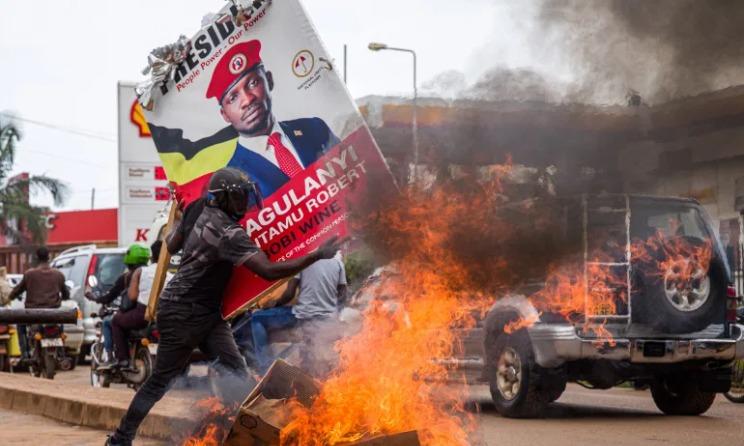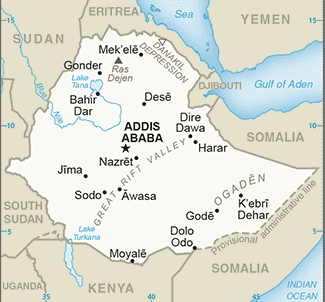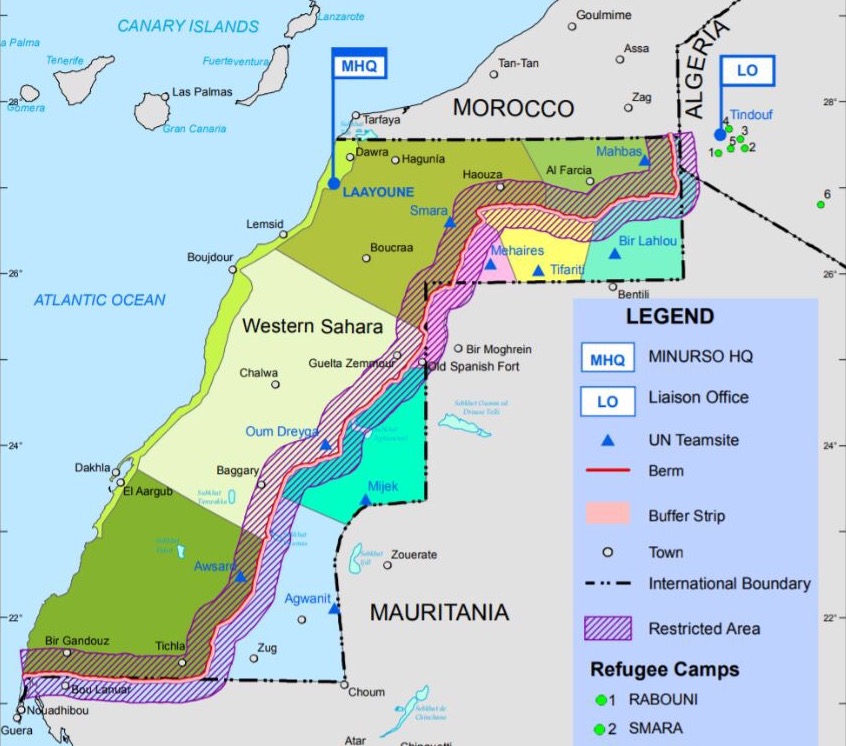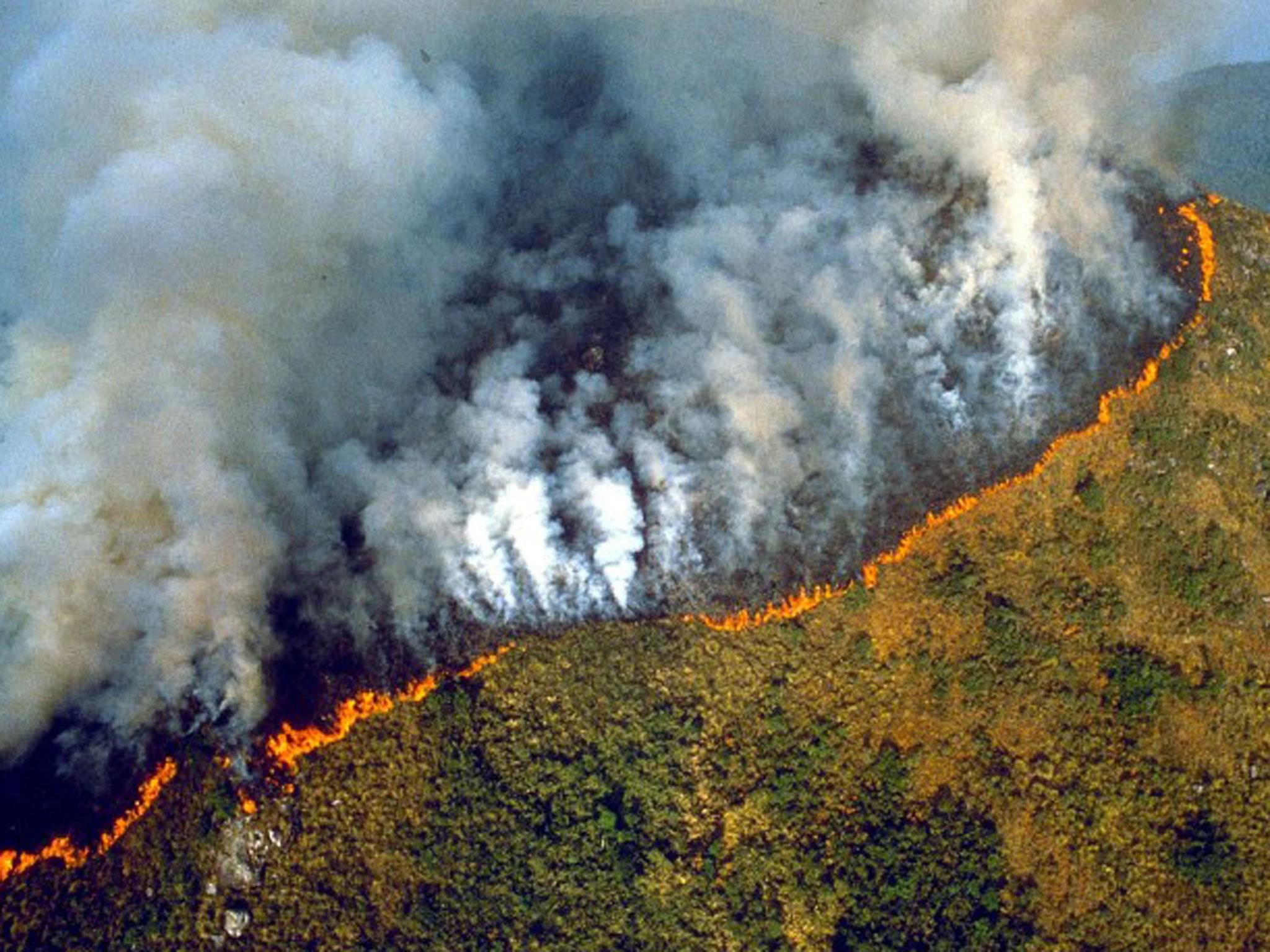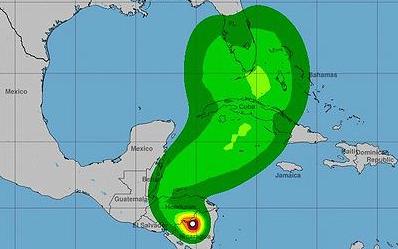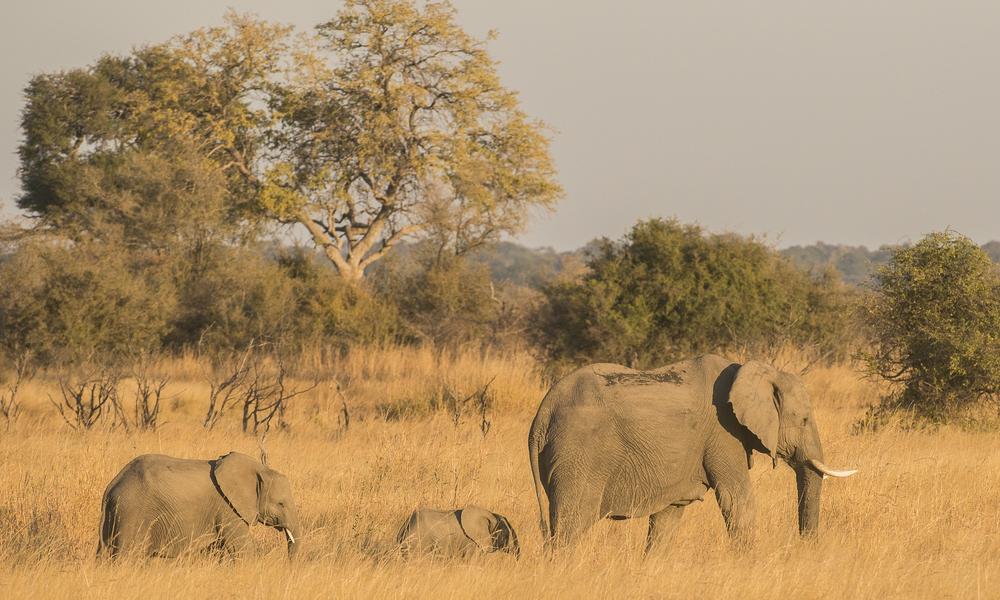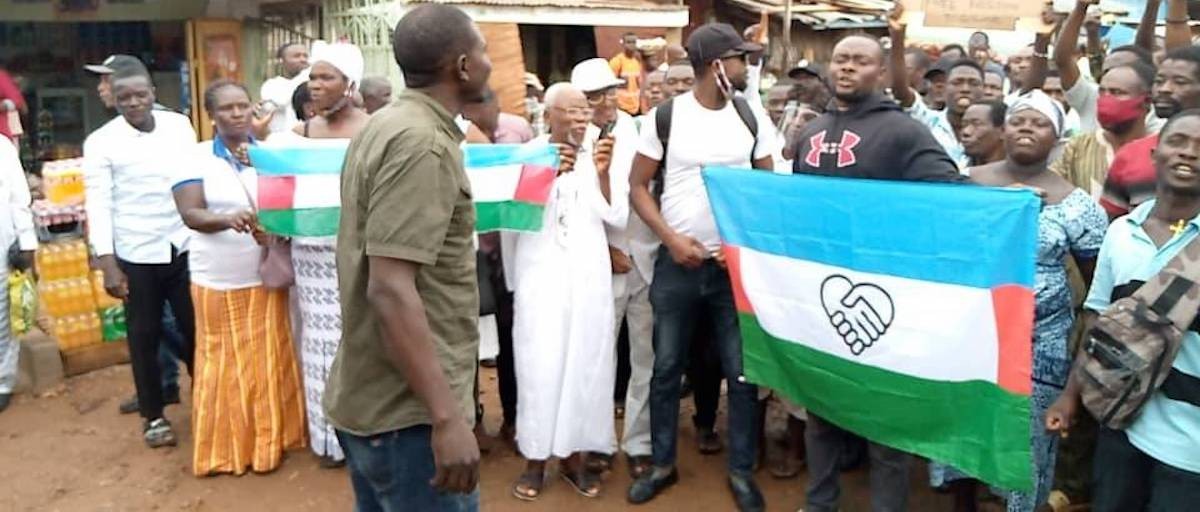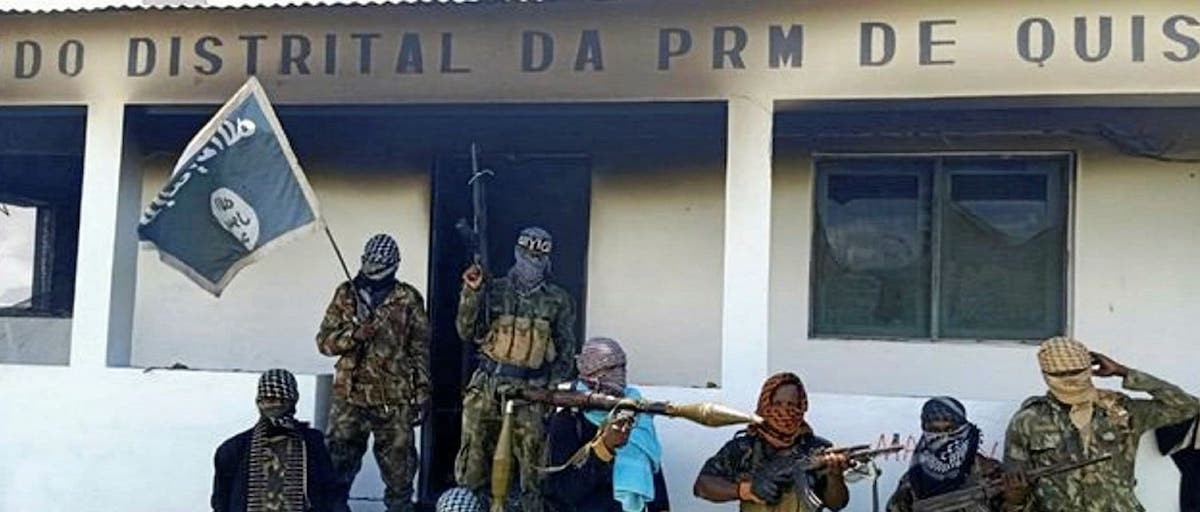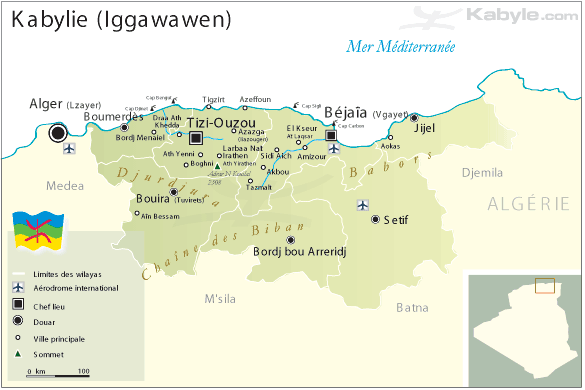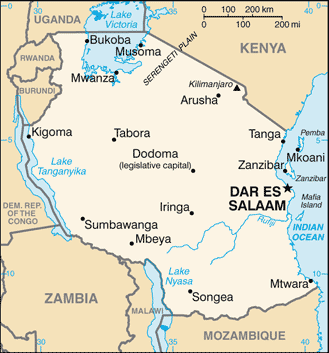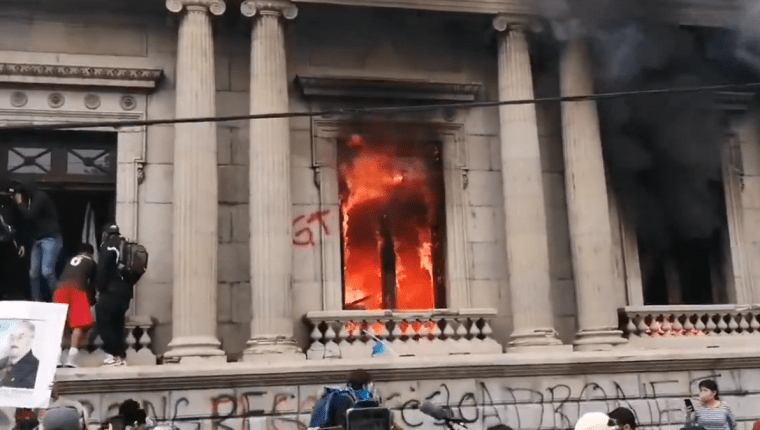
Guatemala: protesters set fire to Congress building
Thousands protested in Guatemala’s capital against a newly approved 2021 national budget that imposes deep cuts in funding for health care, education and programs to combat malnutrition—at a time when the country is hit hard by natural disasters and COVID-19. One breakaway group of protesters hurled improvised incendiary devices at the Congress building, setting it on fire. Police used batons and tear-gas to push protesters back, attacking not only the some 1,000 in front of Congress but also a much larger demonstration in front of the National Palace. The Inter-American Commission on Human Rights condemned what it called an “excessive use of force” by the National Civil Police, while the government of President Alejandro Giammattei accused the protesters of “terrorist acts” that will be “punished with the full force of the law.” (Photo via Prensa Libre)



